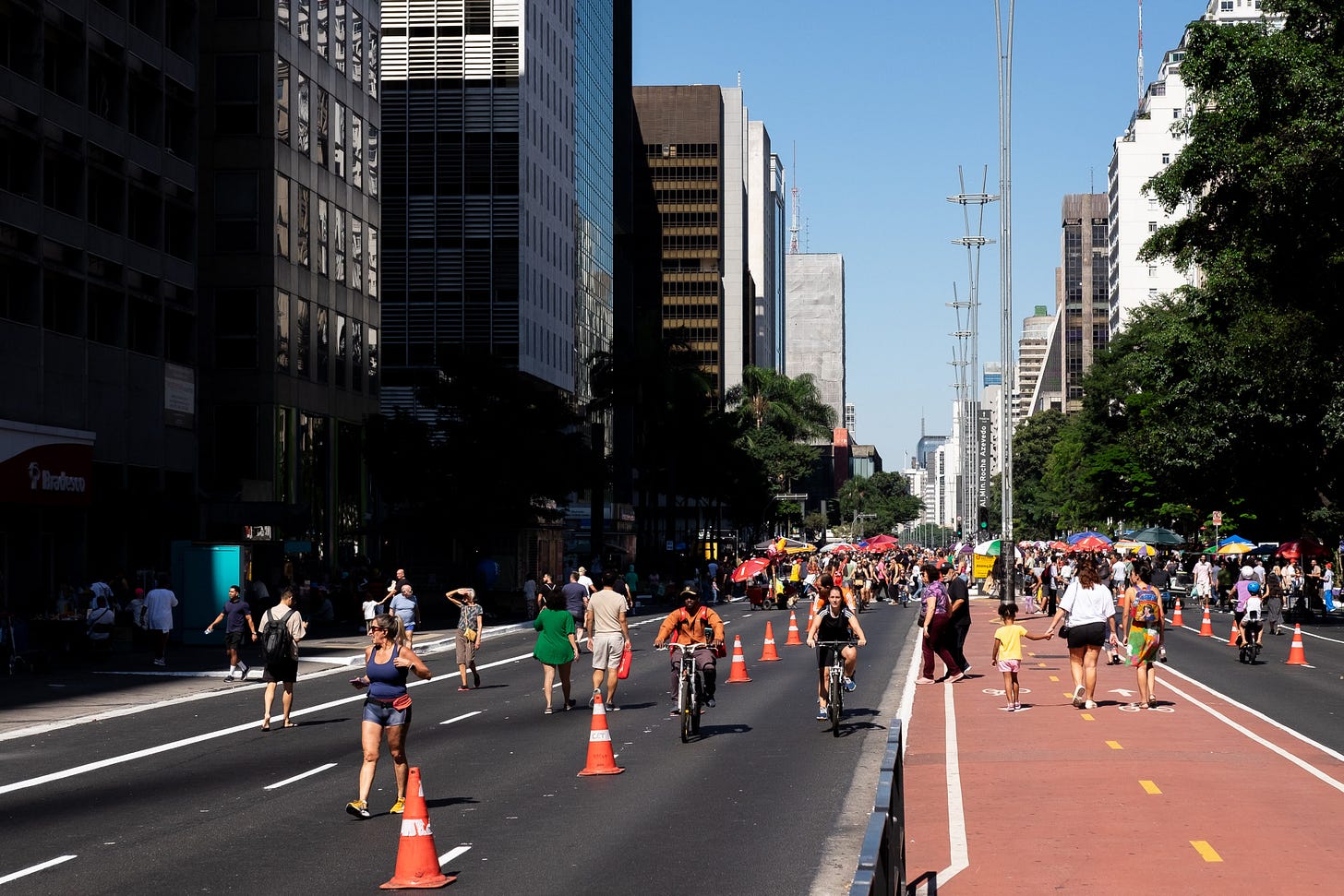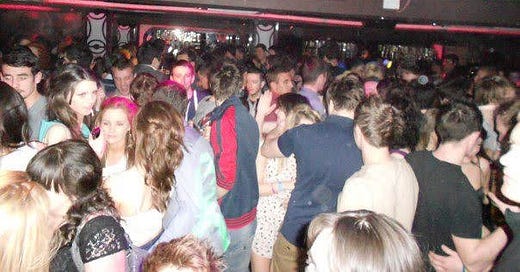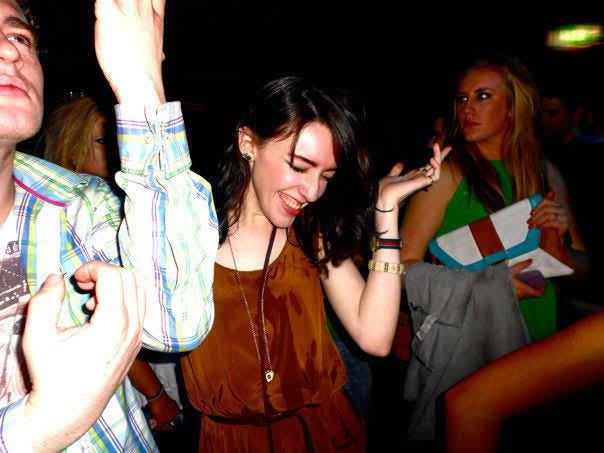giving up/dressing up
going out, getting dressed up, making things, making friends—it all matters
Earlier in this year-long month Vanessa Friedman’s response to a reader asking why people don’t dress up to go out anymore crossed my computer screen, and my reaction was essentially: huh?
Not because her answer wasn’t interesting—I certainly did not know that style “rules” were once taught as part of home economics classes—but because it felt, in the scheme of things, like small potatoes. To put it mildly, there are many frightening things happening in this country, and the incursion of athleisure is not high on the list.
But then I re-read the last paragraph, and reconsidered:
“…if history teaches us anything, it is that what was once out comes in again. So it may be that a new generation is about to discover the fun of dressing up to go out. There is nothing better for self-expression than peacocking in finery, but if that does happen, it will be their choice, not a convention that’s forced upon them. Which is a good thing.”
I don’t think it’s any coincidence that just days after this column, the journalist Liz Plank wrote an impassioned plea to bring back nightclubs–enormous numbers of which have closed since the height of the pandemic. What’s left in the wake of this loss, she writes, is “less clubbing. Less chaos. Less human interaction that isn’t optimized for efficiency. Less of us gathering in the way humans are meant to, casually, spontaneously, without needing a text to schedule a call to schedule a calendar invite just to make it happen. Hanging out has become something to plan, not something that simply occurs. Without randomness, without chance, we lose something essential. We lose the accidental friendships, the unplanned nights, the serendipity that makes life feel expansive instead of contained.”
As a peak Millennial for whom the club was sometimes a blessing and sometimes a curse and undeniably central to my experience of living abroad in Ireland, this piece is a pressure hose of nostalgia. What she doesn’t touch on, and what I recall as vividly and arguably more fondly than the club itself, was the act of getting ready to go out. Trying on an endless parade of weird tops, sharing makeup, selecting boots with just enough of a heel that you felt good but weren’t assuring yourself of a wipeout upon leaving the club five Desperados deep.
I doubt very much this produced the type of “dressing to go out” the writer-in to Vanessa Friedman’s column is longing for, but it was undeniably fun. It built community. In the environment of the club, clothing (going out tops!) created a shared language and opportunities for conversation. In any context, that is what style can do: encourage self-expression, creativity, connection, commonality. To me at least, it’s part of how I show up for and connect to both people and places that I care about.

You can draw a line between the loss of energy around going out—participating, being a bit of a mess and picking yourself back up again—and our current political moment. Covid, of course, has a lot to do with this, but when people feel lonely and disconnected, they often vote in a way that confirms the despair of their outlook. It would be naive to say that simply opening more nightclubs or getting dressed up to go out for an evening will solve the social dynamics feeding into our politics, but it does feel like people are correctly identifying that we’ve abandoned some vital ways of connecting with each other and with our communities in-person. These means of connection were far from perfect: the club, in fact, was often a mess. But maybe the kind of mess that also held a bit of magic:
“Clubbing was never just about drinking,” Liz writes. “It was about serendipity. It was about being pushed into the moment, about encountering people you would never meet otherwise, about friendships that would form and dissolve in a single night, about the transience of human connection in a way that was liberating, not terrifying. The club was the last place where you could fully exist in a crowd, where you could be surrounded by people and still feel anonymous, where you could belong without proving that you deserved to be there. There’s a spiritual case for clubbing.”
Especially among my American friends and readers, I’m probably not alone in the feeling that this is an acutely distressing time to be both consuming and creating content. Everything that is not directly political and/or awash in the horrors this administration is unleashing every day feels sidelined, presented with a giant asterisk. Check-in texts from friends arrive with “well, considering everything” dangling off the typical “how’s it going?” Commentary is flying around people not in the world of politics, asking “how can you possibly be talking about [insert “frivolous” topic here] with what’s happening?”
Layer on the pervasive language that “the world is a dumpster fire;” “everything is terrible;” “it’s hopeless” and you would be forgiven for feeling that anything outside of the political crisis is fluff (or at least, I am forgiving myself for following that line of thinking for an afternoon). You would be forgiven for taking a form of comfort in these expressions: they’re compact, neat, full of certainty. They describe our world in, at most, six easy words. And who doesn’t crave, in times of upheaval, a simple phrase to grasp onto?
But of course, these pithy lines are not the whole picture. While there is no life separate from politics, I think it’s also true that life is so much bigger than politics. And while it’s tempting and perhaps feels correct to minimize our joys and friendships and connections and expressions as “small” in this moment, they’re not. The world also includes people who are fully and authentically expressing themselves; who are creating new art; who are forming new relationships; who are having babies; who are—yes, even now—clubbing; who are going out and supporting local businesses; who are beautifying their communities.
Life doesn’t stop because the proverbial shit of national politics is hitting the fan. Or rather: it shouldn’t stop. If we hear “we live in hell” enough times, it becomes far too easy to give up, to stay in, to draw the circumferences of our lives tighter and tighter around ourselves. Choosing to embrace nuance—the messiness of the fact that our national politics can be horrific while at the same time, our communities and the people within them can be beautiful and good—and continuing to live and contribute to and show up in this complex world feels essential. And the good news is that can take many forms. It can look like befriending a neighbor, posting up at a bar and inviting as many people as you feel, protesting, joining a local organization. It can even just look like wrenching yourself away from your computer and putting on something that makes you feel good and going for a walk to remind yourself that you are a person who exists in the actual world and has something to offer your community.
I am not here to tell you how to proceed in this moment; neither I nor any one person have the answer. I think the answers can only be found in the collective—in continuing to live through this together and imagine and create a better world together. Maybe, a world with both fundamental, unshakable rights AND more nightclubs. How does that sound?






Amazing 🪩
I remember reading somewhere that during wars, clothes and makeup become even more important, because they are a form of self-expression at a time when people feel helpless. To sit around wringing our hands at things beyond our control is not helpful to anyone, so I say: dress up! have fun! If the world is burning, then dance in the flames, in your finery.